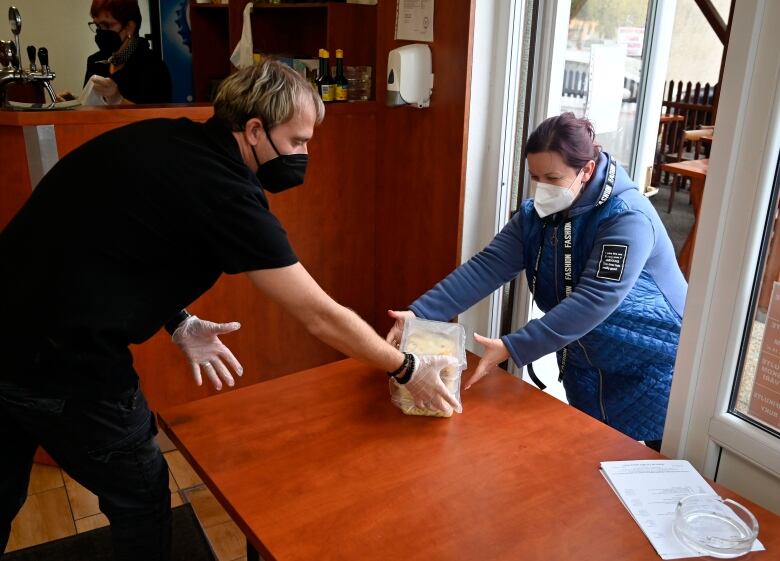The latest:
Most Russians went back to work on Monday for the first time in more than a week as a nationwide workplace shutdown was lifted across most regions, even though the numbers of new COVID-19 cases and deaths are hovering near record daily highs.
President Vladimir Putin announced last month that Oct. 30 to Nov. 7 would be paid “non-working days” — an attempt to slow the surge in cases by imposing the strictest nationwide restrictions since the early months of the pandemic last year. But officials on Monday reported 1,190 nationwide coronavirus-related deaths in the last 24 hours, higher than in the days before the enforced work break and just five short of the record reported last Thursday.
There were 39,400 new COVID-19 cases, down from a peak of 41,335 on Saturday.
The Kremlin said it was too early to judge the impact of the shutdown yet, but it cited Moscow’s mayor, a close Putin ally, as saying the epidemic in the capital was stabilizing.
Despite developing one of the first vaccines against COVID-19 infection last year, Russia has failed to persuade swathes of the population to accept it. Only around 40 per cent of the population is immunized.
Immunologist Nikolay Kryuchkov told Reuters he was skeptical of the effectiveness of the work pause, which only a handful of Russia’s more than 80 regions have chosen to extend into this week.
“I think it will either have a weak effect or a very weak effect,” Kryuchkov said. “It has to be longer and fuller… This is not the same as a European lockdown. It’s a much softer version.”
While people were not meant to work during the lockdown, there was nothing to stop them socializing or travelling in Russia or abroad. Travel agents reported a boom in people flying off on foreign beach holidays.
In Moscow, all shops apart from pharmacies and supermarkets were meant to close, but some pubs and beauty salons were still open.
-From Reuters, last updated at 7:30 a.m. ET
What’s happening across Canada
What’s happening around the world
As of early Monday morning, more than 249.9 million cases of COVID-19 had been reported worldwide, according to Johns Hopkins University’s COVID-19 tracker. The reported global death toll stood at more than five million.
In the Americas, Mexicans who need to cross the U.S. land border for work or school are scrambling to get approved COVID-19 vaccines ahead of new rules set to go into effect next week, 20 months after the United States shut crossings for non-essential trips.
Costa Rican children aged five and up must get COVID-19 vaccinations, according to a new health ministry mandate, making the Central American country one of the first to adopt such a requirement for kids.
In Europe, Slovakia has expanded strict coronavirus restrictions to nearly half of the country amid a record surge of infections. Slovakia, which has a population of nearly 5.5 million people, is one of the countries in the European Union hardest hit by the pandemic. It has registered around 521,650 cases and 13,269 deaths.

In Africa, health officials in South Africa reported 205 new cases of COVID-19 on Sunday and 13 additional deaths.
In the Middle East, Iran on Sunday reported 7,554 new cases of COVID-19 and 126 additional deaths.
In the Asia-Pacific region, Japan recorded no daily deaths from COVID-19 for the first time in more than a year on Sunday, according to local media.
Australia will begin administering booster shots of Pfizer’s COVID-19 vaccine from Monday as millions in its largest city, Sydney, woke up to more freedom amid an accelerating immunization drive against the coronavirus.





More Stories
Fair share: the right office solution can take finding the right partner
Ontario faces crew shortages, aircraft issues in fight against wildfires | Globalnews.ca
Refugee attends open house at Downtown Eastside affordable housing facility – BC | Globalnews.ca